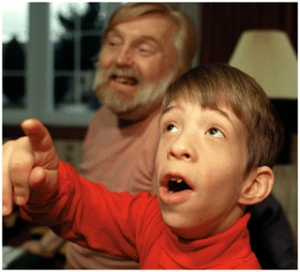Exam 9: Lifespan Development I
Define developmental psychology, then describe and illustrate the ongoing debates regarding nature-nurture, continuity stages, and stability change in this field, and end with a description of how interactionism helps resolve these issues.
Developmental psychology is the scientific study of how and why people change and develop over the course of their life span. This field examines the physiological, cognitive, and social development that occurs throughout a person's life, from infancy to old age.
One ongoing debate in developmental psychology is the nature-nurture debate, which centers around the question of whether genetics (nature) or environment (nurture) plays a more significant role in shaping an individual's development. Some researchers argue that genetic factors have a greater impact on development, while others emphasize the importance of environmental influences. This debate continues to be a central focus in the field, with researchers striving to understand the complex interplay between genetic and environmental factors in shaping human development.
Another ongoing debate is the continuity-stages debate, which examines whether development is a continuous process or occurs in distinct stages. Some researchers argue that development unfolds in a continuous, gradual manner, while others propose that it occurs in distinct, qualitatively different stages. This debate has implications for how developmental milestones are understood and how interventions are designed to support healthy development.
The stability-change debate is also a prominent topic of discussion in developmental psychology, focusing on whether personality traits and other characteristics remain stable over time or change as a result of developmental experiences. Some researchers argue that stability is a dominant force in shaping development, while others emphasize the potential for change throughout the life span.
Interactionism is a theoretical perspective that helps to resolve these debates by emphasizing the dynamic interplay between genetic and environmental factors, as well as the potential for both continuity and change in development. This perspective acknowledges the importance of both nature and nurture in shaping development and recognizes that individuals are active agents in their own development. By considering the complex interactions between genetic and environmental influences, as well as the potential for both continuity and change, interactionism offers a comprehensive framework for understanding and studying human development.
According to the programmed theory of primary aging, ___________.
D
Notable achievements such as _____ have been performed by elderly people.
A
Jeremy was born with facial abnormalities and stunted growth, and is showing signs of delayed motor development and lowered intelligence. Jeremy is most likely suffering from _____. 
_____ is the ability to understand that it is possible to undo any change in appearance of an object that results from moving, turning, and the like.
_________ in 100 children are born with fetal alcohol syndrome.
The major body organs and systems develop during this period of pregnancy, from implantation through the eighth week.
_________ is a period of special sensitivity to specific types of learning that shape the capacity for future development.
This has been used as a dependent variable in infant sensory-perceptual research.
Contrast the terms puberty and adolescence, and list the major physical changes that occur during puberty, middle age, and later adulthood.
Which of the following is not a major debate in developmental psychology?
A child believes that any object that flies is a bird. This would be an example of _________.
All of the following are advantages of the longitudinal study EXCEPT:
Discuss the limitations and criticisms of Piaget's theory of cognitive development.
The _____ believe that Tiger Woods's achievements are primarily due to his innate athletic abilities.
Filters
- Essay(0)
- Multiple Choice(0)
- Short Answer(0)
- True False(0)
- Matching(0)